


Introduction: The Importance of Safety in Travel
Travel brings unexpected challenges, from lost baggage to plane delays to car accidents to heart attacks. I have travelled or lived in 80 countries now, including four war zones, and I do all I can to protect myself, my property, and my data.” including travel and life in four war zones, and I do all I can to protect myself, my property, and my data. It always amazes me how naive many travellers are with these things, causing stress, danger and expense. Poor preparation and safety awareness are not an excuse in today’s world.

Do Your Research: Preparing for the Unexpected
It amazes me that people do not check information about their destination before leaving:
- Are there any cultural issues?
- How does your destination feel about women travelling alone?
- How safe is it if you practice a particular religion?
- How safe is it if you are LGBTIQ?
- What is the political situation? Is there any political unrest?
- What is the state of the weather?
- Are your vaccines current?
Practical Tips: 1. Ensure you gather detailed information on these aspects well before your trip. Ignorance can lead to dangerous situations and unnecessary stress. Comprehensive preparation can significantly enhance your safety and enjoyment during travel.
2. Always have a backup plan and emergency contacts for each leg of your journey.
Upload all documents to the cloud.
Understand Your Insurances

About ten years ago, I fell down the beautiful Ta Keo Temple in Angkor Wat after another tourist pushed through the wrong way, knocking me off balance. The fall resulted in a dislocated shoulder. Thankfully, my travel insurance covered all my expenses at the best hospital in the region and even offered an emergency medical evacuation home. I have never been more grateful for that insurance.
Today, more travellers are aware of travel insurance, but many are still unaware or unsure of what their policy includes or excludes.
In one Australian survey, over half of all travellers did not know what was in their insurance coverage. In the same survey, 25% of Australians drank to excess, not realizing their policy specifically excludes coverage when the insured is drunk. Many don’t know that leaving luggage unattended is often not covered and that driving or riding a motorcycle without a license or helmet can invalidate your policy. Engaging in excluded activities such as parasailing, skydiving, or skiing off-piste can mean that if you are injured, you have to cover the bills yourself.
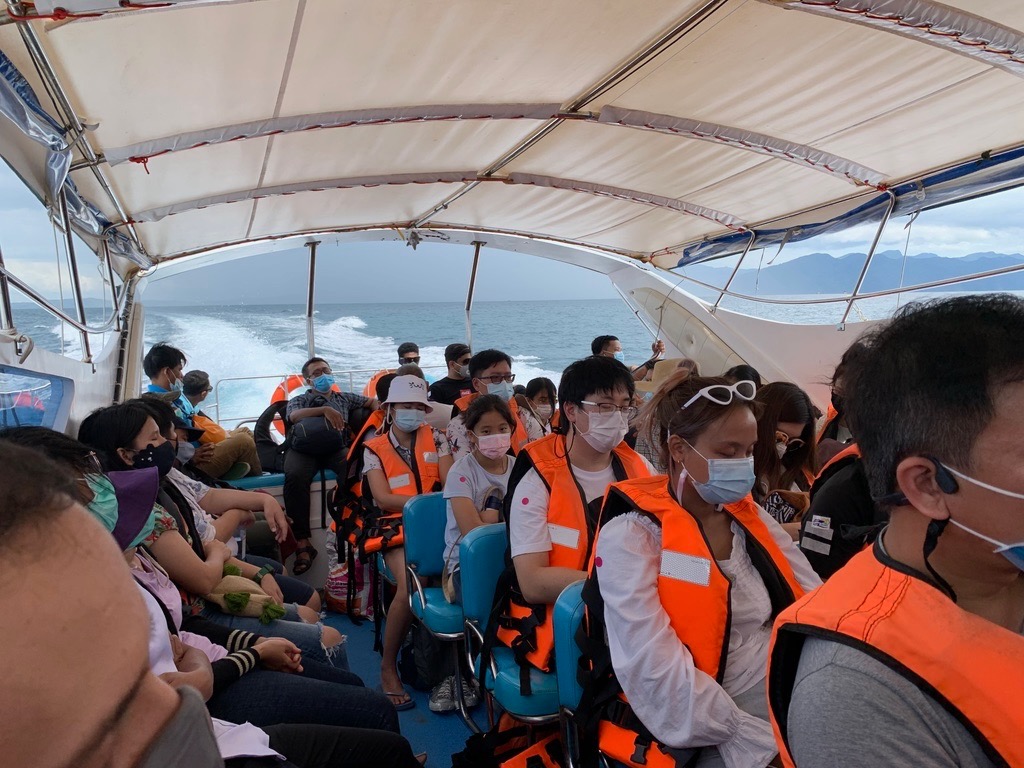
Practical Tip: Take out comprehensive travel and medical insurance. Ensure it covers all of your destinations, all of your activities, and potential medical treatments. Understand what might be excluded.
Safe and Unsafe Destinations for Travel
Many people do not realize that their insurance company may not cover you if you travel to an unsafe or prohibited destination. Last year, countries such as Canada, Denmark, Finland, Iceland, Luxembourg, New Zealand, Norway, Singapore, Sweden, and Switzerland were all ranked as the safest destinations on the planet, with a stable political climate, first-rate medical facilities, and a high degree of security. Being in these places usually means you can enjoy your travel without excessive worry.
At the other end of the spectrum are the world’s most hazardous countries: Afghanistan, the Central African Republic, South Sudan, Syria, Libya, Somalia, Yemen, Iraq, Mali, and the Democratic Republic of Congo. Concerns also include Russia, the Palestinian Territories, and Lebanon, given current increases in turmoil and violence. There may also be countries you think are safe but are off-limits to your country’s citizens.
Practical Tip: To find the latest travel advisories and lists of countries, refer to their respective government websites dedicated to travel safety and advisories:
- Australia – Smartraveller (Department of Foreign Affairs and Trade): smartraveller.gov.au
- Canada – Government of Canada Travel Advice and Advisories: travel.gc.ca
- France – France Diplomacy: diplomatie.gouv.fr
- Germany – Federal Foreign Office: auswaertiges-amt.de
- India – Ministry of External Affairs: mea.gov.in
- Ireland – Department of Foreign Affairs: dfa.ie
- Japan – Ministry of Foreign Affairs: mofa.go.jp
- New Zealand – SafeTravel (Ministry of Foreign Affairs and Trade): safetravel.govt.nz
- South Africa – Department of International Relations and Cooperation (DIRCO): dirco.gov.za
- Sweden – Sweden Abroad: swedenabroad.se
- UK – Foreign, Commonwealth & Development Office (FCDO): gov.uk/foreign-travel-advice
- United States – Department of State Travel Advisories: travel.state.gov
Know what your Embassy/Consulate can help you with
Over the years of living in multiple countries, I have seen quite a few people getting into trouble or having accidents abroad and assuming that their embassy will swoop in and rescue them. It’s important to keep expectations in check. Our passports do not grant you any extraordinary privileges aside from consular assistance. Embassies and foreign missions abroad are not a get-out-of-jail-free card, and neither diplomats nor local embassy staff will go out of their way to solve your personal problems. Embassy staff are not there to act as a concierge, and foreign citizens are guests in the country they’re staying in. The embassy has no influence on the judiciary or law enforcement agencies.
Practical Tip: Register with your local embassy’s citizen services website if available. This can range from registering your foreign residence to listing yourself in their emergency services database. Also, avoid high-risk areas, don’t be an idiot and have an evacuation plan.
Understanding Local Laws and Customs

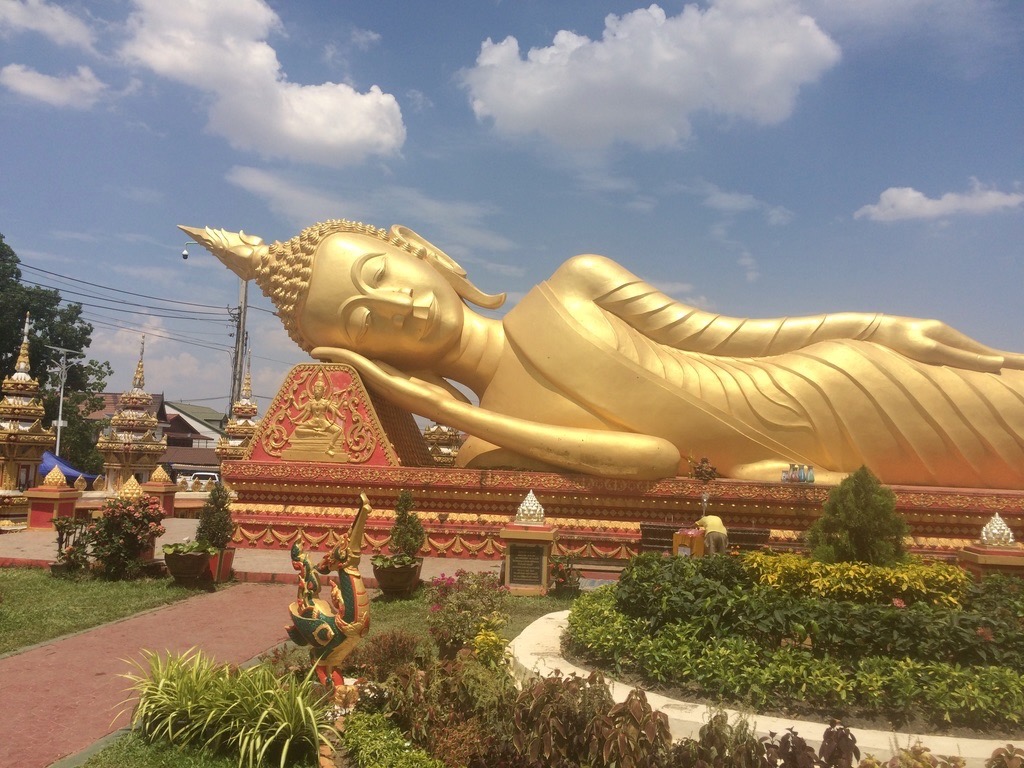
Traveling to a new country is an exciting experience. It is essential, but also fun and respectful, to familiarize yourself with local laws and customs. What might be acceptable in your home country could be frowned upon or even illegal in another.
For instance, in some countries, public displays of affection are not allowed, while in others, specific dress codes must be followed, particularly when visiting religious sites. Additionally, gestures and expressions that are considered harmless in one culture can be offensive in another.
Doing so not only avoids any inadvertent offences but can also endear you to the locals. I met a traveller who insisted on shaking hands, refusing to accept customs like the Wei (Thailand) or bowing (Japan) as legitimate methods of greeting. This approach can create awkward situations and misunderstandings. I have met others who share proudly that they refuse to learn a word of the local language or dialect.
Practical Tip: Research social norms and dress codes and always show respect for local customs and traditions. This will not only help you avoid offenses but can also make your travel experience more enjoyable and enriching.
Crime Risks
Travel exposes you to daily hazards like theft and health problems, even if you avoid the most hazardous regions. I live part of the year in a large Asian metropolis, and it amazes me to watch tourists loudly chatting in their native language about being lost or how much money they are carrying while they are keeping phones in back pockets, carrying unzipped handbags and backpacks with easy-to-access pockets. They are basically inviting a pickpocket to target them.
Practical Tip: Please secure your belongings. Be aware of your surroundings. Keep emergency contact numbers including the number of the police and ambulance service in your destination. Carry basic medical supplies and stay informed about local emergency services. Avoid displaying valuables and stay vigilant in crowded places.
Medical Problems and Precautions
(Me enjoying a drip in Asia!!). Travelling exposes you to various health risks, especially if you’re unprepared. Common travel issues include stomach problems, food poisoning, insect bites, stray dogs, and more. These issues can quickly turn a pleasant trip into a stressful situation. Being proactive about potential health concerns can significantly reduce the likelihood of encountering serious problems while abroad.
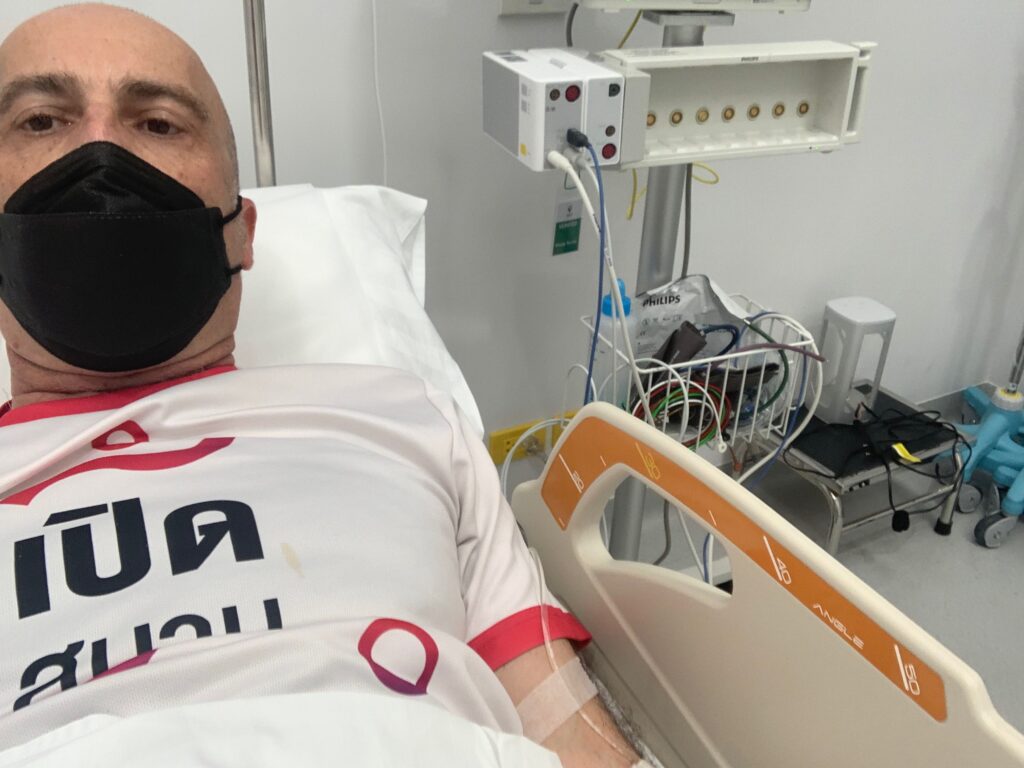
Understanding that medical facilities and standards of care can vary widely from one country to another is essential. In some places, access to quality healthcare may be limited, and language barriers can complicate communication with healthcare providers. Therefore, being well-prepared is crucial.
Practical Tips: Pack Prescription Medications in your carry-on luggage. Bring a copy of your prescriptions to avoid issues with customs and to provide medical personnel with the necessary information. Ensure your vaccinations are current and keep a record with you. Use insect repellent and wear appropriate clothing to protect against insect bites.
Maintaining Cyber Safety
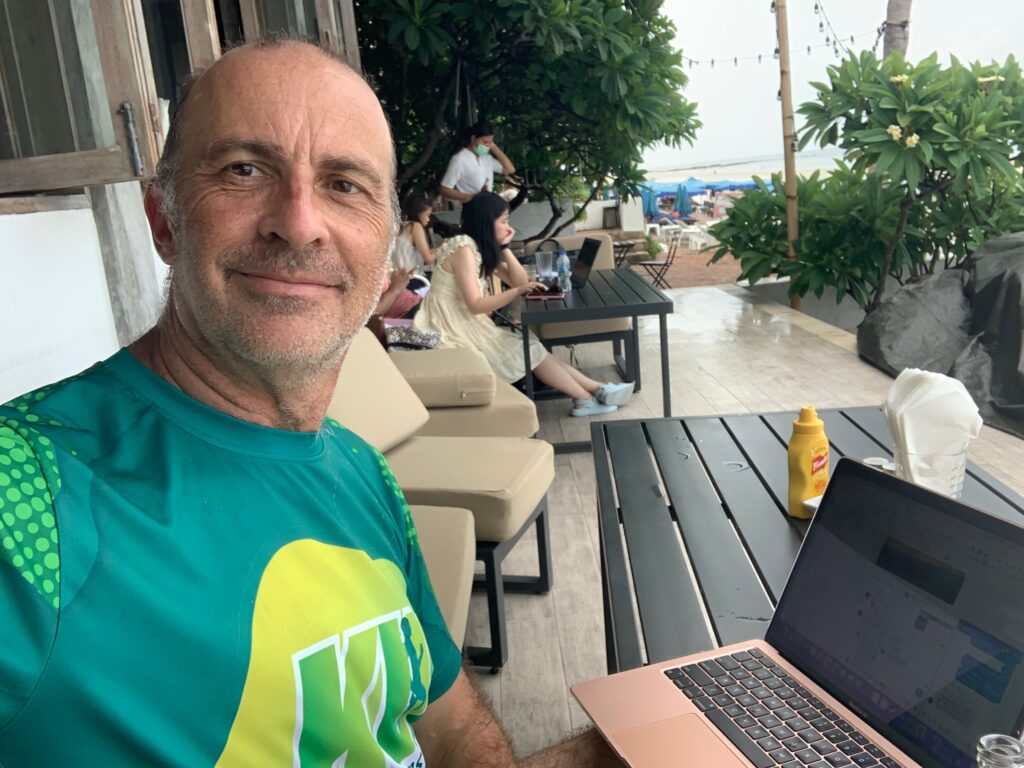
Among the rising risks to travellers is cybersecurity through sophisticated phishing emails, malware, and botnet automation. Digital highwaymen often attack open public Wi-Fi networks. Hotel rooms can be perilous with “evil twin” Wi-Fi connections and public USB charging ports.
Always confirm the exact name and password for Wi-Fi from your hotel reception to avoid connecting to a fake network. Use a VPN to encrypt your data and block third parties from intercepting it. Enable a firewall on public Wi-Fi and disable automatic connections to protect your information. Regularly update your cybersecurity software. While I am active on social media, I wait one to seven days before sharing my whereabouts.
Weather, Climate Change and Safety
Travellers now face fresh dangers due to climate change. Extreme weather occurrences and record-high temperatures are increasing. In 2023, nations including Bangladesh, India, and Thailand experienced unprecedented heatwaves, while natural disasters like Typhoon Freddy evacuated hundreds of thousands in southern Africa. Greece is currently experiencing major water shortages.
If you have a medical condition like asthma, be advised that visiting places impacted by wildfires might aggravate it. Rising temperatures also correlate with the expansion of malaria, dengue fever, and mosquito-borne illnesses like Zika.
Practical Tip: Check the local weather forecast regularly, and be prepared for sudden changes in weather conditions.
Conclusion: Staying Informed and Prepared
In the end, a little common sense helps to significantly reduce hazards. Continuously update your knowledge and stay informed about potential risks and necessary precautions.

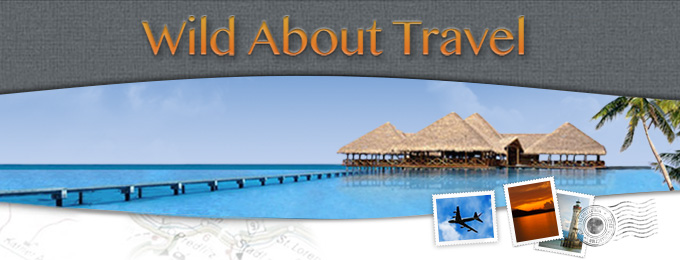
Excellent advice. I’m currently on another birthday Round the World trip.
While I consider myself savvy and experienced, you have added some helpful information plus needed encouragement to be more deliberate on alternatives travel when things go bad. Thanks
OTOH now that I’m 72, for the first time I purchased an annual BlueGEO medical evacuation insurance which pairs (hopefully) well with my BC/BS health insurance I have at least 5 international trips within the year term one of the top ten things I learned in law school – always have insurance
My husband wants me to tell people when asked where I’m from to say Canada I’m working on the accent, eh.
Glad to see Singapore on the good list. Love gardens by the bay super trees. In the Mideast I feel comfortable in Abu Dhabi – love the Louvre and looking forward to seeing more museums there, but I stick to just transferring in Doha – Al Safwa lounge. I’ve been to the top of the Burj Kalifa and the traffic is terrible so just transit T3 A concourse lounge in Dubai
I enjoy knowing at least a little on local customs. Love to bow 😉
Also just like going to my local CVS, I pack my patience 🙂